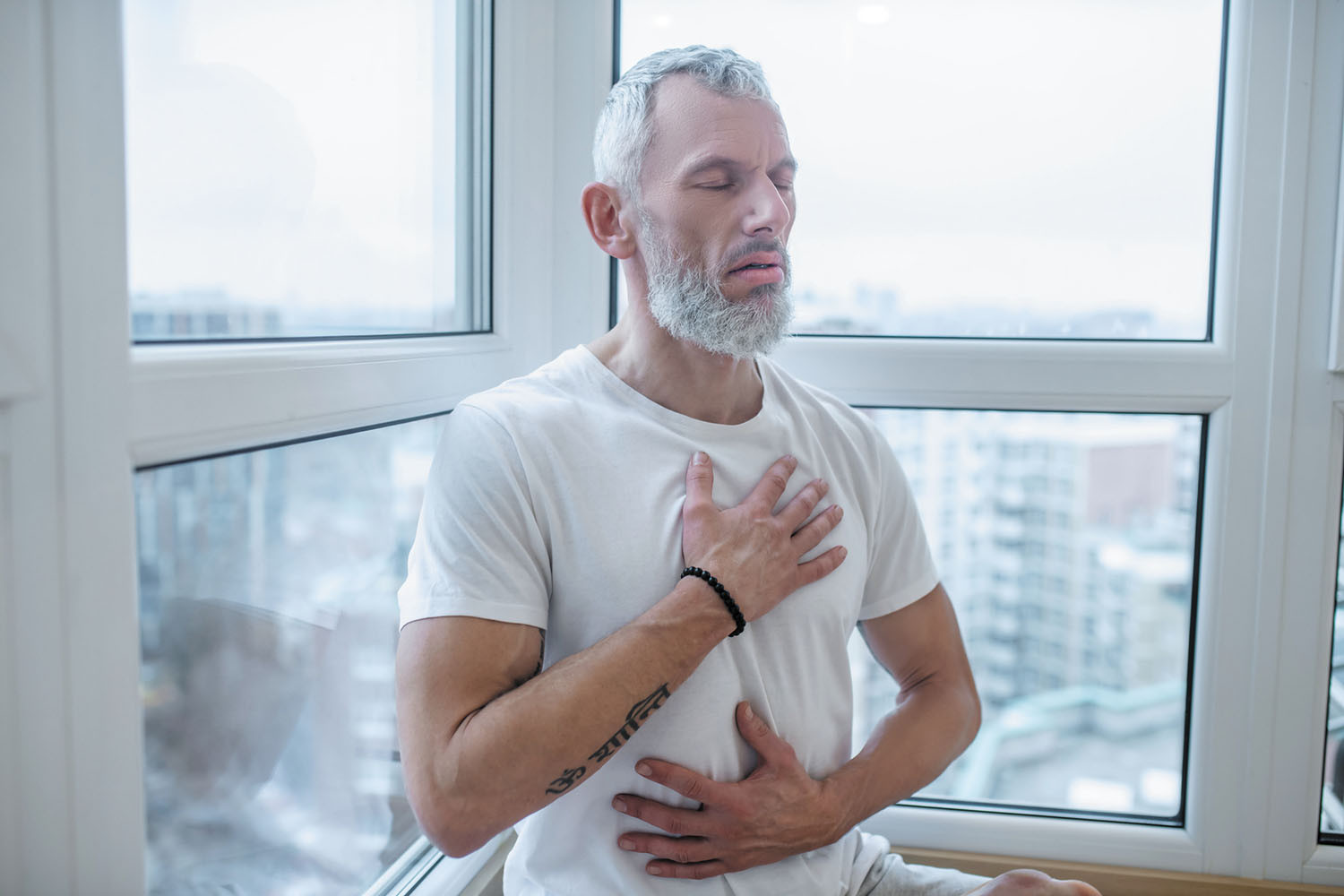
Daily cup of coffee may prevent afib recurrence

Gene-editing therapy lowers harmful blood fats in early study

What is EMDR therapy, and who can it help?

GLP-1 drugs versus bariatric surgery for treating obesity

Trying to lose weight? Be careful not to lose muscle

Two dumbbells, three exercises, and 10 minutes

Easing the emotional burden of IBS

Modify your push-ups to meet your fitness level

What is long QT syndrome?

Stroke survivors may benefit from very low LDL levels
Mental Health Archive
Articles
Pain conditions are more common in women
Women are disproportionately affected by conditions that cause chronic pain, but they sometimes have difficulty getting a definitive diagnosis as to what is causing their pain and may be less likely to receive appropriate treatments even when they do.
Is online gambling harming you?
Online gambling is a popular and growing business, but for millions of Americans, what begins as occasional fun can lead to devastating problems. Trouble with gambling often builds gradually and severe gambling problems share risk factors with substance-related disorders.
For mellow movement that helps your heart, try tai chi
Tai chi is a gentle, adaptable practice that features flowing movements combined with breathing and cognitive focus. It may be especially helpful for people who are recovering from a heart attack or other medical problems or who have heart failure. Tai chi also can be a gateway to other types of physical activity because the practice may improve balance, reduce the risk of falls, and even help ease lower back pain—a common reason for avoiding exercise.
Try this: Take a tactical breather
Tactical breathing used by military and law enforcement personnel can help people manage anxiety and stay mentally sharp during stressful situations. It can also help calm a racing mind or soothe pain.
Lending a helping hand
People who devote time to helping others are often happier than those who don't. Serving others also helps brain health by increasing social connections, which can protect against loneliness and depression, and improving executive function skills like planning, attention, and remembering tasks. Common ways to help others include volunteering, mentoring, random acts of kindness, and seeing life from another person's perspective.
Grief can raise blood pressure
A 2023 study suggests that extreme grief after losing a loved one can raise people's systolic blood pressure, posing cardiovascular risks.
Can you feel younger than your age?
Research has found that people with more positive attitudes about growing old tend to live longer than those with negative thoughts about aging. They also have a lower risk for diabetes, stroke, cancer, and heart disease and better cognitive functioning. People can maintain a healthy mindset about aging by adopting certain lifestyle habits, such as reducing anxiety, finding purpose in life, seeking challenges, socializing more, and rejecting negative stereotypes about aging.
Steps to spot the signs of hoarding
Hoarding disorder is a mental health condition characterized by an inability to discard certain belongings to the point of unhealthy accumulation. While the types of hoarded items vary and might be useless to others—old clothes, boxes, papers, junk mail, or even spoiled food or garbage—the person hoarding the items is convinced they'll be needed one day. The mere idea of parting with them is extremely distressing. In time, stuff fills the home in mounds of disorganized clutter that jams rooms and hallways and threatens safety. Beyond clutter, signs of hoarding disorder include impaired behavior, such as social isolation, sleep loss, or indecision.
Validation: Defusing intense emotions
Validation is a valuable communication technique that can help people feel heard and understood. When used correctly it helps us understand another person's feelings and establishes trust, particularly in situations with heightened emotions.

Daily cup of coffee may prevent afib recurrence

Gene-editing therapy lowers harmful blood fats in early study

What is EMDR therapy, and who can it help?

GLP-1 drugs versus bariatric surgery for treating obesity

Trying to lose weight? Be careful not to lose muscle

Two dumbbells, three exercises, and 10 minutes

Easing the emotional burden of IBS

Modify your push-ups to meet your fitness level

What is long QT syndrome?

Stroke survivors may benefit from very low LDL levels
Free Healthbeat Signup
Get the latest in health news delivered to your inbox!
Sign Up











